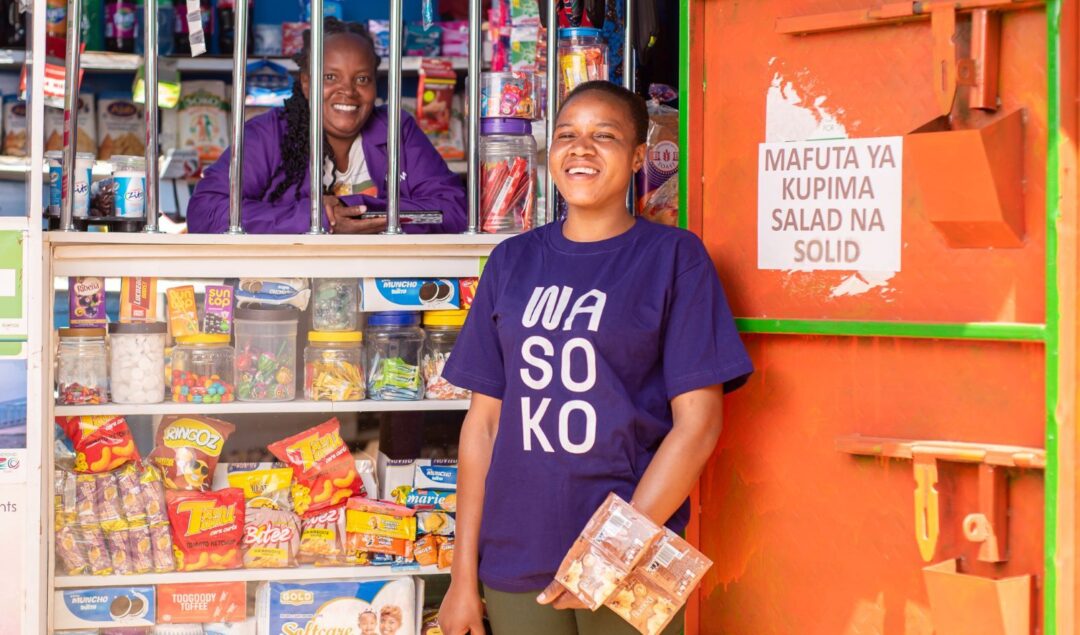Intuit is hiring on POCIT. Petagae Butcher is a versatile force in the tech world, currently working as a Staff Technical Program Manager at Intuit. Her introduction to technology started with a love of Super Nintendo in the 90s. She later graduated from the University of Central Florida with a degree in Management Information Systems, initially majoring in Computer Programming, finding her niche bridging the technology and business worlds. Over her 18-year career, she’s garnered a wealth of experience, from software consulting to her current role at Intuit. Born on
SunCulture, a Kenya-based company focused on climate technology, recently raised $12 million to expand its solar-powered irrigation systems across sub-Saharan Africa. The funding is part of a larger $27.5 million Series B round. Revolutionizing Agriculture with Solar Power In many countries around the world, climate change and erratic weather have made it increasingly dificult for farmers to maintain consistent crop yields. SunCulture’s solar-powered irrigation systems aim to help farmers efficiently use water and boost their crop yields, even with unpredictable rainfall. These systems are sustainable and cost-effective alternatives to traditional,
Canadian pre-seed venture fund Panache Ventures has teamed up with Africa-focused fintech firm Kora to address funding challenges that African tech entrepreneurs face. Payments infrastructure for Africa Established in 2017, Kora is a payment gateway facilitating local and international transactions across several African markets, including Nigeria, Ghana, and Kenya. Kora opened a UK office in 2022 through a collaboration with the West Midlands Growth Company, an initiative designed to drive regional investment and stimulate economic growth in the UK. The platform is particularly known for its multi-currency transactions and recently
Verod-Kepple Africa Ventures (VKAV) has announced the closure of its first fund at $60 million. A Pan-African Vision with Global Backing VKAV is a collaborative effort between West African private equity firm Verod Capital Management and Tokyo-based venture capital firm Kepple Africa Ventures. Notably, the fund includes backing from Japanese powerhouses such as SBI Holdings, Toyota Tsusho Corporation, and Sumitomo Mitsui Trust Bank. Nigeria’s SCM Capital and other institutional investors from Japan, including Taiyo Holdings also contributed. VKAV’s investment strategy focuses on digital infrastructure builders, efficiency solvers, and market creators.
In the first quarter (Q1) of 2024, Africa’s startup scene saw another year-on-year and quarter-on-quarter dip in investments – with a notable exception in the mobility and fintech sectors. A drop in funding According to Africa: The Big Deal, Q1 saw $466 million raised through $100k+ deals by 121 startups (excluding exits). This is a 27% decrease from the previous quarter and only half of the amount raised at the same time last year. Techpoint Africa’s analysis of data from Intelpoint notes a 62% drop in African tech startup funding compared
Nigerian startup Thepeer, which gained prominence for its API-based payment solutions, has announced its closure just three years after its inception. Thepeer went from securing $2.1 million in seed funding led by Raba Partnership, with participation from Rali_cap Ventures, BYLD, and fintech giants like Chipper Cash and Stitch, to its unexpected shutdown recently announced. “We embarked on a mission to create something unprecedented, a unique method for transferring money between digital wallets and making payments for goods and services directly from these wallets,” the founders said in a statement. “Yet, we soon realized that exceptional
Visa and Mastercard are setting their sights on Africa’s fintech market. Africa’s booming fintech sector E-commerce is booming across the continent. The Wall Street Journal reports that by the end of this year, an estimated 435 million Africans are expected to shop online, a nearly twofold increase since the pandemic. However, people are less likely to make payments using cards than in other global markets, relying instead on mobile money, digital wallets, and bank transfers. Visa and Mastercard, determined to stay relevant, are pouring millions of dollars into the continent
Wasoko, one of Africa’s largest B2B grocery marketplaces, has experienced a 48% markdown in its valuation. A B2B Grocery Marketplace Founded by Daniel Yu in 2014, Nairobi-based Wasoko has grown remarkably, expanding its operations across multiple African markets. By 2023, it boasted a significant customer base, secured agreements with major suppliers, and offered competitive pricing. TechCrunch reports that VNV Global, a Swedish investment firm, has revised Wasoko’s value to about $260 million, a 48% reduction from previous estimates, according to its annual report for 2023. This revision coincides with Wasoko’s planned merger
Meta Platforms Incorporated recently announced that it will enable content creators in Nigeria and Kenya to monetize their content on Instagram and Facebook starting June 2024. Monetizing Instagram Content Spearheaded by Nick Clegg, President of Global Affairs at Meta, this initiative aligns with the growing recognition of Africa’s digital potential. Meta will introduce a feature on its Instagram app in June, allowing Nigerian creators to monetize their content and earn a living using it. Creators can run ads in-stream and engage with an international audience. “Nigerian creators have global reach,” Nick Clegg, the company’s President of
Twitch streamer and YouTuber Kai Cenat has recently committed to building a school in Lagos, Nigeria. Cenat Visits Nigeria Cenat recently visited the Makoko Children Development Foundation School and Orphanage in Lagos, where he saw the dire conditions of the students and staff. Documented on his YouTube channel, the visit highlighted the school’s sinking building, limited space, and the struggle to provide a learning environment for its 385 students. The 23-year-old principal’s plea for help to rebuild and expand the school resonated deeply with Cenat. “First of all, I want to say it’s













